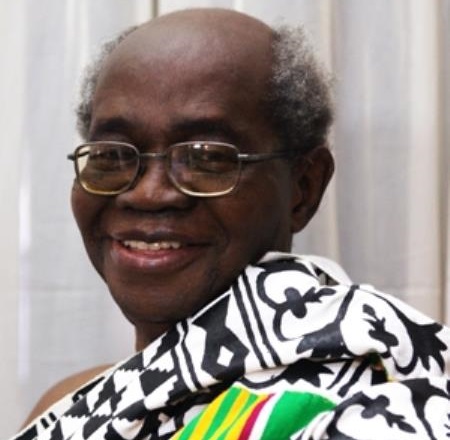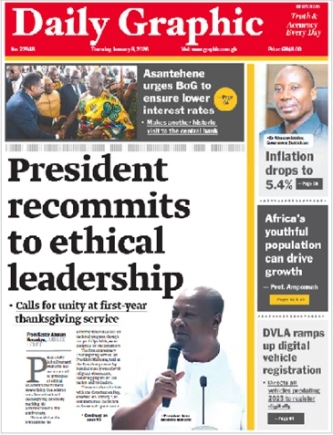
The quintessential African cultural ambassador in honour of J.H. Kwabena Nketia
Let it be said right away that J. H. Kwabena Nketia is one of those great Africans who, had they not been born, would have had to be invented. And God being so good, blessed the continent with him. Amen!
Professor Nketia stirred my conscience as a student at Mfantsipim, Cape Coast. At the time, in tune with the contemporary 1960s, we “twisted” and “shouted” to the records of The Beatles, Sam Cooke, Ray Charles, Little Richard, and others. But as contrasts to the western songs, the advent of the black and white “Akasanoma” television provided Saturday night musicals called “Our National Heritage” telecast by Ghana Broadcasting Corporation (GBC). By offering local alternatives to the pop music frenzy juggling the heartbeats of the juvenile imagination, the programme steered us back to earth.
“Our National Heritage” offered fresher glimpses into a world we already knew at our toe tips; but that world was now packaged anew with sparkling richness. At the end of each performance, the camera turned for commentaries, such as, the stories behind the lyrics, the meanings in the elegant moves of the dancers, the poetry in the drums, and a taste of what to expect next.
Presiding over the interpretations - in proud splendor - was the veritable duo, the late A.A.Y. Kyerematen, and the maestro J.H. Kwabena Nketia. Though the drums, songs, poetry, and dances were familiar, they were now relayed in fresh delightful graces. The grass was greener right there in our own native turf!
Arduous CV
But it was not until about 1980 that I had the good luck of meeting Prof Nketia and his dear wife, Auntie Lily, in the flesh. He had come to Los Angeles, to the University of California (UCLA) Department of Music and the Institute of Ethnomusicology where he taught and supervised the doctoral dissertations of American and international students. We connected through his attendance at the Ghana Association of Southern California meetings.
His admirers in California were not destined to love and keep him for long. In 1983, the University of Pittsburgh made him an offer he couldn’t refuse: the Andrew W. Mellon Professor of Music. Soon thereafter he was made Chairman of the Music Department from 1986 – 1989.
Perusing Prof Nketia’s CV is a dizzying task. The depth and richness in his intellectual experiences are extraordinary. He has tasted and enjoyed every fulfilment in life except boredom. His ability to recall cadences, lyrics and motifs helped to blend and score music wherever he found them. He said, from “the materials I encountered in my research [I] could move from tradition to modernity without masking my African voice or losing my African identity. This has been particularly important to me as a composer.”
In June 1988, the China Conservatory of Music, Beijing, invited him to design a six-week course in Ethnomusicology. From China, he was in Canberra, Australia, to give a plenary address on “Exploring Intercultural Dimensions of Music in Education.” From 1989 to 1992, Prof Nketia served in the Overseer’s Committee of Harvard University’s Department of Music.
Conferment
Prof Nketia cherishes a “Festschrift” presented on him by UCLA (1989). Conferred in two volumes titled “African Musicology: Current Trends”, the “Festschrift” celebrated “the international influence and recognition of one of the world’s premier humanistic scholars, ethnomusicologists, and music educators.”
In the following month, Harvard honoured him to give the Charles Seeger Memorial Lecture. As Prof Nketia recalled, “The hall was packed and many people were sitting on the floor.” He described the event as “a sort of crowning thing in my career as an Ethnomusicologist in the United States.” From Pittsburgh, Prof Nketia was at Kansas University as Langston Hughes Professor of African and African-American Studies for the Spring of 1992.
The de facto Ethnomusicologist
The young Nketia leaped off in the Gold Coast, in 1949, with his first book “Akanfoo Nnwom Bi”, followed by two classics “Funeral Dirges of the Akan People”, and “The Music of Africa”, now translated into Japanese and Chinese. With the literary “virtuosa” Efua Sutherland, and the photographer Willis Bell, they founded the Afram Publications in the 1970s, and published “Anwonsem” (Akan Poetry), and “The Poetry of Atumpan Drums”, and others.
His talents have taken him to major musical and intellectual centres across the continents as the de facto Ethnomusicologist ambassador of Ghana. The man and his works are national treasures to be conserved for posterity. Even at age 95 (he was born June 22, 1921 at Mampong, Asante) he does not rest from his labours.
At the core of Prof Nketia’s being is that absolute modesty: “Ade pa nkasa”, as we say in Akan: the selflessness, the sense of purpose, his ability to relate to the youth like peers, and lastly, those easy smiles that defy understanding.
Accessibility
Prof Nketia has compiled his music into CDs and cassette tapes in Vols. 1 – 4 as a testimony of his lifelong interests. He says in the companion booklet: “A hunter is the person whose venison lies on the hot grill and not the one whose venison is in the bush.” (The collections are improvisations for symphony and orchestral performances with strings, percussions, piano, flutes, and horns, and are digitised by his archival assistant Andrews Agyemfra-Tettey, at the School of Performing Arts, University of Ghana, Legon.)
The source materials for his artistry were in the wellsprings of the traditional songs the young Nketia absorbed from his grandmother, Yaa Amankwaa, and her cousin, the “Adowa hemmaa”. The stimulus began in small, pure streams; but he expanded and spread them out like winged rivers cascading into wider channels; he made his new stuff fit the old pieces like puzzles. The secrets were in his improvisations and innovations; they both sported his creative qualities, and hatched a brave new genre – the Contemporary African Art Music.
Email: anishaffar@gmail.com

 Click the link to read your copy.
Click the link to read your copy.